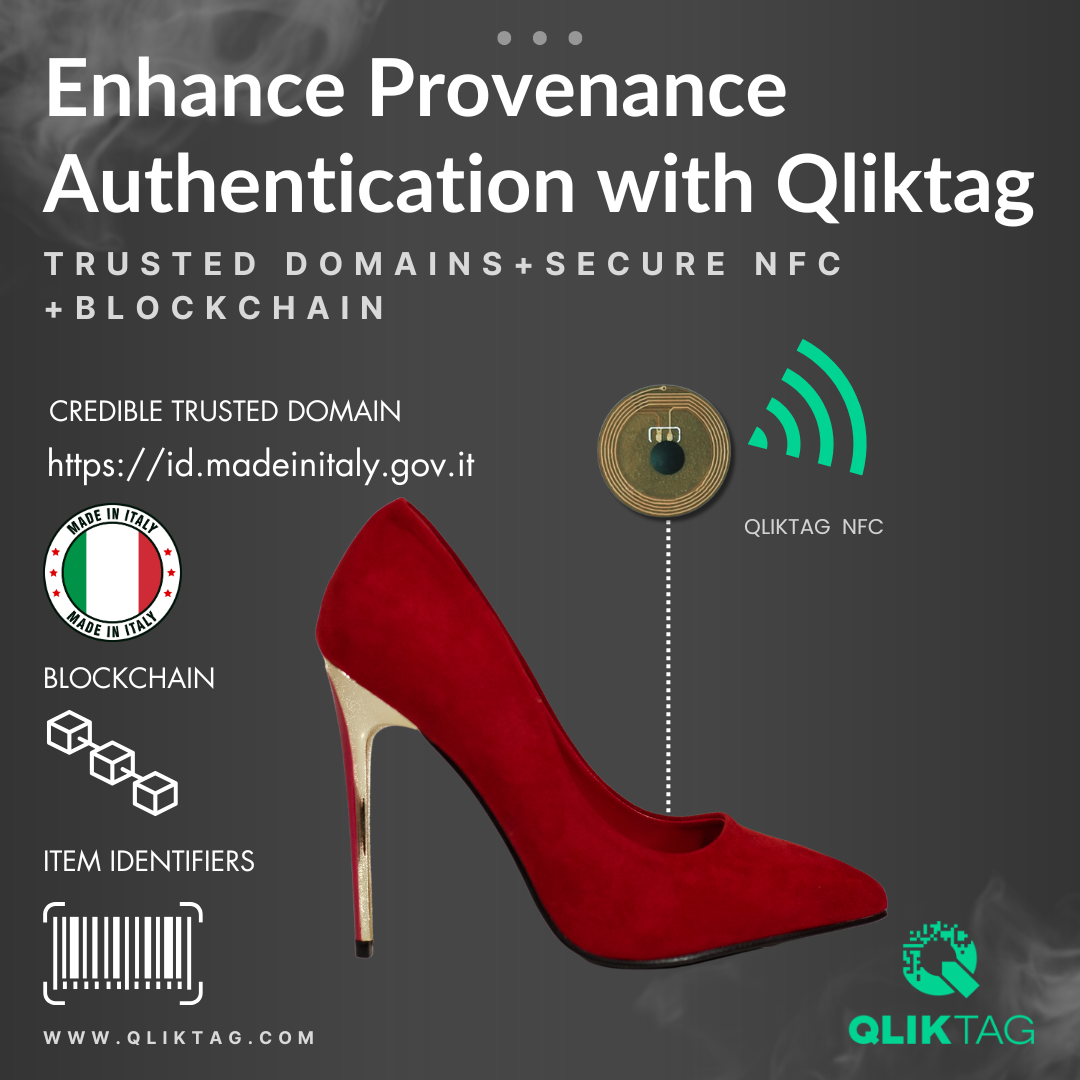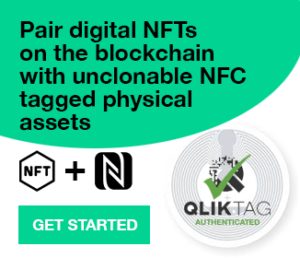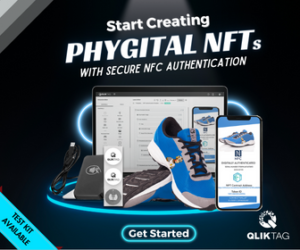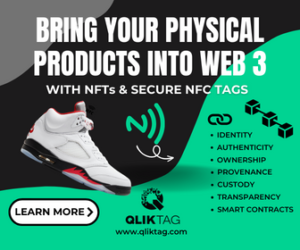In today’s globalized marketplace, provenance authentication has become a critical component of trust between brands and consumers. Shoppers are increasingly seeking to verify the origins of the products they purchase, whether it’s ensuring that a luxury handbag is genuine, that their Parmesan cheese is truly made in Italy, or that their favorite sneakers are authentically from the brand they love. Yet, the challenge of providing consumers with easy, reliable, and tamper-proof ways to verify product origins has persisted.
Advances in technology, particularly in the areas of blockchain, secure NFC (Near Field Communication) tags, and the use of trusted domains, now offer innovative solutions for overcoming these challenges. By integrating these technologies, brands can create a seamless, secure, and trustworthy system for provenance authentication, redefining consumer confidence and product integrity.
The Challenge of Provenance Authentication
Provenance authentication involves tracing the origin and history of a product, ensuring that it was created by the claimed manufacturer, in the claimed location, using the claimed materials or processes. Historically, this has been difficult to achieve because:
- Counterfeiting: Fake goods often mimic authentic products, including their branding and packaging. Even when serial numbers or QR codes are used, these can be replicated or tampered with.
- Complex Supply Chains: Products often pass through multiple intermediaries, making it challenging to maintain an unbroken chain of trust.
- Consumer Doubts: Without a reliable way to verify authenticity, consumers often rely on trust in the brand, which can be exploited by counterfeiters.
Traditional methods like holograms, serial numbers, or paper-based certificates have fallen short of addressing these issues comprehensively. What’s needed is a digital solution that is both secure and consumer-friendly.
How Blockchain and Trusted Domains Revolutionize Provenance Authentication
Blockchain technology plays a transformative role in solving provenance challenges by creating immutable digital records. Each product can be serialized during manufacturing and linked to a blockchain entry, ensuring an unalterable log of its origin, journey, and authenticity. However, blockchain alone isn’t enough. To truly inspire consumer confidence, the blockchain records must be accessible through a trusted and recognizable source: the brand’s official domain.
Trusted domains serve as digital anchors for brand identity. When consumers visit websites like nike.com or gucci.com, they inherently trust the legitimacy of these domains because they are controlled by the brand itself. By combining this trust with blockchain-backed provenance records, brands can offer consumers a reliable way to verify the authenticity of their products.
For example, a product-specific link such as https://id.nike.com/01/33444333453/21/HTRX7738393777363 could combine a unique product identifier with blockchain-backed data. Consumers scanning this link can instantly verify the product’s origin, manufacturing details, and authenticity—all from Nike’s trusted domain. This connection to the brand’s official online presence reassures customers that the information is genuine and untampered.
Securing Provenance Authentication with Qliktag’s Unclonable NFC Technology
While trusted domains and blockchain records are powerful tools, the challenge lies in ensuring that the link between the physical product and its digital record cannot be counterfeited. Here is where Qliktag’s secure unclonable NFC technology comes into play.
Qliktag’s solution embeds secure NFC tags into products. These tags are:
- Unclonable: Unlike traditional QR codes or basic NFC chips, Qliktag’s secure NFC tags use advanced cryptographic techniques to prevent duplication or tampering.
- Digitally Authenticated: Each tag is linked to a unique product-specific URL linked to the blockchain and accessible through the brand’s official domain. The secure NFC chip ensures that only authentic products can point to these URLs.
- Seamlessly Embedded: The tags are integrated into the product itself, making them an intrinsic part of the item.
By combining Qliktag’s NFC technology with trusted domains, brands can extend their digital trust to physical products. For example, scanning an NFC chip embedded in a luxury handbag could take a consumer to a blockchain-backed record hosted on the brand’s website, confirming its origin and authenticity.
Real-World Applications: From Italian Craftsmanship to Global Brands
The potential applications of this technology are vast and impactful. Consider products bearing the label Made in Italy, such as Parmesan cheese, cured meats, or luxury fashion pieces. These items are often targeted by counterfeiters who exploit the premium value of Italian craftsmanship.
What if an official Italian commerce institution issued secure NFC tags linked to its .it domain, such as https://authentic.madeinitaly.it/0345938204/? By scanning the tag, consumers could instantly verify that the product was genuinely made in Italy, with an immutable blockchain record to back it up. The unclonable nature of Qliktag’s NFC tags ensures that counterfeiters cannot replicate this system, providing a foolproof solution for provenance authentication.
Global brands like Nike, Gucci, or The North Face could similarly adopt this technology. A secure NFC tag embedded in a sneaker, handbag, or jacket could provide customers with instant, trustworthy verification of the product’s origin via the brand’s official domain.
Building Consumer Confidence Through Technology
For consumers, the ability to verify provenance is not just about ensuring authenticity—it’s about trust. Knowing where a product originated and how it was made fosters confidence in the brand and its commitment to quality, ethics, and sustainability. With blockchain-backed records, trusted domains, and secure NFC tags, brands can offer a seamless and secure provenance authentication experience.
Conclusion: The Future of Provenance Authentication
The integration of blockchain, trusted domains, and Qliktag’s secure NFC technology marks a new era in provenance authentication. This powerful combination enables brands to deliver transparency, trust, and authenticity to their customers in ways previously thought impossible. By leveraging these technologies, brands can combat counterfeiting, simplify supply chain transparency, and reinforce consumer confidence.
In a world where consumers increasingly demand proof of origin, this technology not only meets expectations but sets a new standard for trust. Provenance authentication has never been more critical—or achievable.



